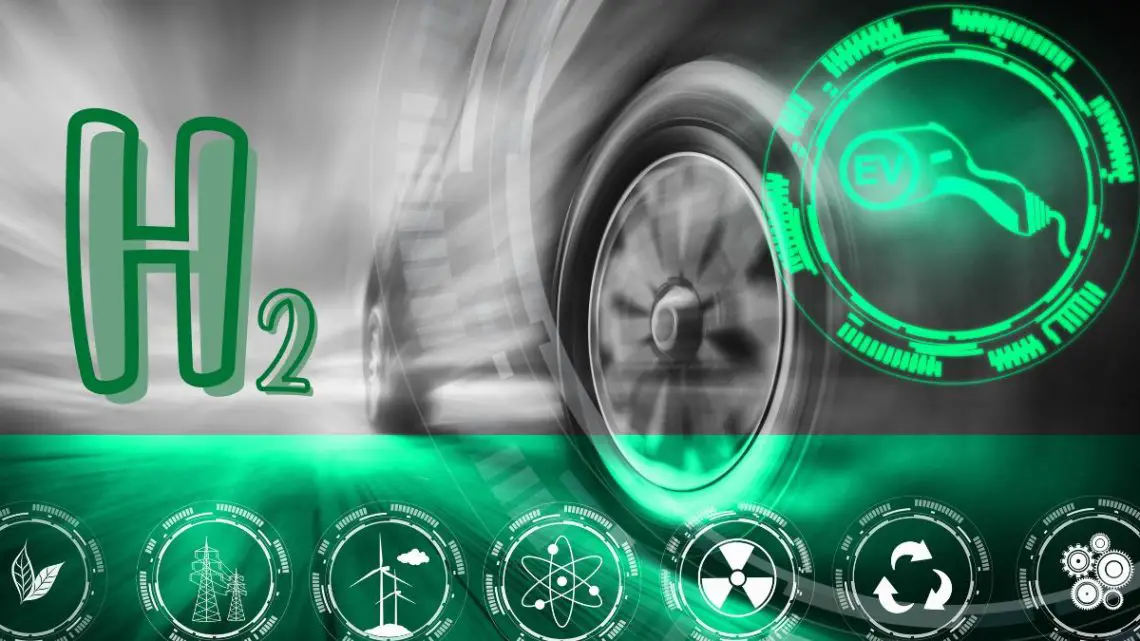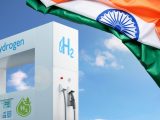
Experts Finally Agree – Both battery and hydrogen fuel cars are needed to decarbonize
September 12, 2023Though it may seem that the world is dividing between these clean energies, it’s not either/or.
Often when there are discussions about hydrogen fuel cells or battery electric engines, the conversation will focus on which one is the best clean energy option to power our future. Increasingly, experts are agreeing that it won’t be one or the other, and that it is likely that they will not be the only clean power options as we move forward in the battle against climate change.
There are advantages to both types of carbon emission-free power and they each have their place.
Proponents of each technology have been vocal in spotlighting the benefits that they have to provide. Often, they will compare battery electric to hydrogen fuel cell performances, particularly when it comes to vehicles. However, experts are now coming to the conclusion that it’s not really a matter of deciding which technology will win out and which will disappear. Instead, each form of clean power will find its place, as each has strengths in their own areas.
It’s true that battery electric passenger vehicles have taken a tremendous head start over hydrogen cars, but that doesn’t mean there isn’t a place for both. Geography, use, cost, climate and other factors all play a role in determining which option is best suited.
Even in passenger vehicles hydrogen fuel cars are expected to play a supporting role in coming years.
According to Toyota’s fuel cell integration group senior engineering manager Jackie Birdsall and McKinsey & Co senior partner Bernd Heid, as zero-carbon transportation continues to advance, it is likely that fuel cell vehicles and electric cars will play complementary roles to each other.

They discussed this subject while taking part in an online panel hosted by Automotive News.
Two options are better than one
“I think we will see in the next year that we will need both technologies,” explained Heid. “The interesting part is that it’s not only dependent on the propulsion technology of the powertrain, but it also has to do with the infrastructure. And we will see that two infrastructures will be cheaper to society than if we just do all-electric infrastructure.”
 “Hydrogen and fuel cell electric vehicles are complementary,” said Birdsall in agreement, stating that the vehicle decarbonization transition cannot be accomplished through a single technology. “There’s two different use cases. Our job is to give these zero-emission technologies, to make them available to the customer, and then the customer can choose the application or the powertrain that best suits their lifestyle [and] that best suits their fleet’s needs.”
“Hydrogen and fuel cell electric vehicles are complementary,” said Birdsall in agreement, stating that the vehicle decarbonization transition cannot be accomplished through a single technology. “There’s two different use cases. Our job is to give these zero-emission technologies, to make them available to the customer, and then the customer can choose the application or the powertrain that best suits their lifestyle [and] that best suits their fleet’s needs.”
About the future of electric and hydrogen fuel vehicles, Birdsall went on to add that, “We need to invest in the infrastructure equally for both battery electric and for fuel cell electric vehicles so that they can both succeed and both be available because in reality, we’re going to need both if we are going to really achieve our decarbonization goals.”
FAQs about the debate between Battery Electric Cars and Hydrogen Fuel Cars
1. What are the main points of debate between Battery Electric Cars and Hydrogen Fuel Cars?
The main points of debate include:
- Efficiency: Some argue that electric cars are more energy-efficient as they convert a higher percentage of the electrical energy from the grid to power at the wheels. However, others point out that hydrogen fuel cell vehicles can have a longer driving range.
- Infrastructure: Critics of hydrogen cars point to the lack of hydrogen fueling stations, while those skeptical of electric cars often point to long charging times and limited range.
- Environmental impact: Both types of vehicles produce zero tailpipe emissions, but there is ongoing discussion about the overall environmental footprint of each, considering factors like the production and disposal of batteries or the production and transportation of hydrogen.
2. Why do some people prefer Battery Electric Cars over Hydrogen Fuel Cars?
People who prefer BEVs often cite their superior energy efficiency, lower running costs, and the growing availability of charging infrastructure. They also note that electricity can be produced from renewable sources, contributing to the reduction of carbon emissions.
3. Why do some people prefer Hydrogen Fuel Cars over Battery Electric Cars?
Supporters of Hydrogen Fuel Cell Vehicles value their speedier refueling processes and extended travel ranges in comparison to Battery Electric Vehicles. They contend that hydrogen, being the universe’s most abundant element, offers a virtually inexhaustible source of fuel. Furthermore, they emphasize that green hydrogen can serve as an ultimate fuel source capable of powering not only vehicles but also high-emission industries such as cement production. Using green H2 also will reduce the escalating demand for lithium mining.
4. Are there any compromises or middle grounds in this debate?
Yes, some propose plug-in hybrid electric vehicles (PHEVs) as a middle ground. These vehicles run on battery power for short trips and switch to gasoline or diesel for longer journeys. Alternatively, some suggest that BEVs could be used primarily for urban commuting, while FCVs could be used for longer trips.
5. Which technology is winning the debate?
Currently, BEVs are more prevalent due to more developed infrastructure and lower vehicle costs. However, many experts believe that both technologies will coexist in the future, serving different needs in the transportation sector.
Please note that this information is subject to change as technology continues to evolve.




 With over 15 years of reporting hydrogen news, we are your premier source for the latest updates and insights in hydrogen and renewable energy.
With over 15 years of reporting hydrogen news, we are your premier source for the latest updates and insights in hydrogen and renewable energy.
How about combining the two ?? PHEV .
Problems = Average driver wants to take a long trip
Or vacation without setting to wait to
charge.
Also wants to save on fuel costs.
Also wants the speed and power.
90% of a daily drive can be done ev with 50-100 miles
Of battery. Keep the total drive mechanism electric.
Leave out the heavy engine and transmission. Use a
small efficient generator to recharge on the longer trips.
Run it on hydrogen with a replaceable tank that can be
exchanged at existing stores and fuel stations. If the
tank only gets one or two hundred miles, stop and get a
refill. Charge at home save money and no
infrastructure needed. So what’s the problem?
Great discussion! In my opinion nuclear-generated hydrogen will be the game changer. When nuclear-generated hydrogen using high temperature electrolysis (being tested now) or a purely thermochemical process becomes reality we will have an inexpensive and non-fossil generated huge supply of H2. Should easily be able to have a 500 mile range on one fill.
I have not seen a single energy pundit take on @Mark P Mills [techpundit] regarding the content of his 4 episodes of ‘Electric Vehicles for Everyone? The Impossible Dream’ [aka The Unachievable Nightmare]
FCEVs are in the same category as BEVs, to be broken on the wheel of energy-mineral [including copper] shortages.
Hydrogen is certainly the way – the only way – to decarbonise transport and that includes road, some rail, shipping and aircraft. But only nuclear enabled hydrogen (NEH) will be affordable and available in quantity as wind and solar technologies also crumbles from energy-mineral scarcities that will inevitably result from 140 or so nations scrambling towards net-zero.
The upshot is that iron/steel/aluminium-based, hydrogen-powered internal combustion engines and jet engines, that sidestep all of the issues of mineral scarcities, stand alone as the solution.
Search for: “how nuclear enabled hydrogen (neh) will save the planet”
don’t look for an AC vs. DC or VHS/Beta or Qwerty vs. Dvorak, “winner take all” outcome. Look, instead, for a blend of fuel alternatives, including battery electric and hydrogen-electric, and other technologies (such as hybrid and synthetic fuels going into the future.
Hydrogen powered FCEVs are the preferred choice over EVs for many reasons, in particular they are favoured when the energy needed to be stored on board the vehicle increases as the load and or range increases. This mainly applies to heavy goods vehicles, but the problem is that it will take many years for fleets of diesel and petrol powered heavy goods vehicles to be converted to hydrogen-fuel-cell-battery power and the world only has 26 years to do it. Politicians tend to not invest in projects such as hydrogen filling stations that don’t produce results in the electoral time cycle.
Hyfrogen is not a viablr fuel for cars now and it is not clear it ever will be. Green hydrogen might be viable for process fuels and long term energy storage. Until it can be proven to be viable in areas more suited to it, it is pointless to consider it fot vehicles where it has many disadvantages to batteries.
When it is cheap and abundant due to nuclear generation the technology will shift quickly.
Renewable energy, like hydrogen, is abundant. Nuclear energy is not. Renewable energy is safe and is the ultimate future energy supply for hydrogen. Nuclear is an interim measure.
Nuclear is abundant when you consider the sources being uranium, thorium, reprocessed spent fuel, fast spectrum reactors, uranium extraction from seawater, and fusion. We will have abundant fission and fusion energy for millennia. Nuclear energy is safer than renewables because it uses an incredibly dense source. Mortality per megawatt electricity generated is the least with nuclear, even compared to renewables. Did you see the dam break disaster in Libya?? The future is nuclear electricity and nuclear hydrogen.
Yo diría que descontaminar es la prioridad, cualquier tecnología basada en cero emociones la considero importante tomando en cuenta riesgos por supuesto, la humanidad evolucionara hacia una constante de cero emisión y seguramente en función de esa conciencia de cero emisión escogerá el camino correcto y el más adecuado